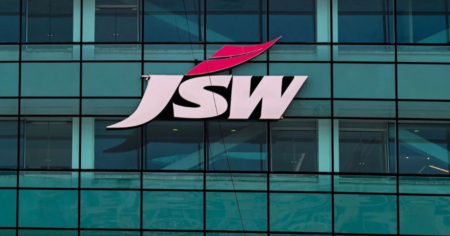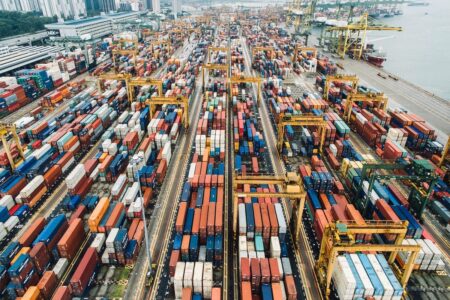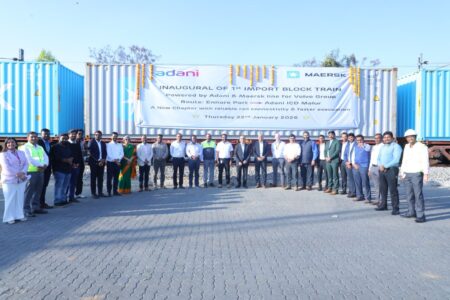Omprakash Agrawal, Managing Director, Nagarkot Forwarders, discusses the dynamic changes in automobile logistics. From the “Make-in-India” impact to challenges in handling shipments, he emphasises efficiency, technology, and the evolving trends shaping the industry’s future.
The landscape of automobile logistics has undergone significant changes in recent years. A notable shift is observed with the implementation of “Make-in-India.” Previously reliant on fully assembled unit imports, there is a trend among clients to manufacture and export specific models globally, leading to an increased emphasis on export logistics.

Anticipating the future of automobile logistics, several trends are poised to reshape the industry
Another noticeable evolution is the growth of local sourcing, creating a demand for professional logistics companies to manage domestic operations. Additionally, the industry has witnessed the entry of new global brands and OEMs into the Indian market, particularly in the electric vehicle sector, where the domestic manufacturing ecosystem is emerging. Key innovations include the widespread adoption of supply chain digitization, real-time tracking, and the incorporation of sustainability as a significant criterion in the selection of logistics suppliers.
Logistics dilemmas
Logistics companies are grappling with significant challenges in handling automobile shipments. Import shipments, often bringing 1,200–1,500 CBUs in a single vessel, pose potential bottlenecks in port infrastructure when multiple OEMs simultaneously have high-volume shipments. The shortage of car carriers before vessel arrival further impedes swift inventory transfer to OEM warehouses. Ensuring efficient delivery demands meticulous planning, involving dispatch planning, VIN allocation, and coordination with stakeholders. Established SOPs, experienced manpower, and dedicated operations centres contribute to an efficient logistics ecosystem.
Tech transformations
In the realm of automobile logistics, technological advancements play a pivotal role. Embracing this shift, tools like WhatsApp enhance real-time customer experiences. Artificial intelligence optimises route planning, boosting efficiency, and minimising transit times. Blockchain technology ensures secure and transparent data management across the supply chain. Proprietary e-learning modules continuously train the workforce, adapting to industry changes. Automated reporting, both internal and client-facing, streamlines processes, while automation expedites data entry. In an industry traditionally physical-heavy, technology emerges as a powerful enabler, reshaping and redefining the landscape of automobile logistics.
Shaping the future
Anticipating the future of automobile logistics, several trends are poised to reshape the industry. Firstly, an increasing share of exports will characterise total logistics. The current fragmented nature of the automobile logistics supply chain will see a shift towards consolidated, end-to-end players providing integrated solutions in response to growing customer demand for single-window services. Sustainability will become a pivotal concern, influencing all stakeholders and permeating through contractors and sub-contractors. Simpler duty calculations for automobile products are expected from a customs perspective. On a macro-level, dedicated infrastructure at ports or private facilities for comprehensive services during transit, such as PDI and QA, could be transformative in a populous economy.
Strategic collaboration
As the industry undergoes these transformative changes, collaboration and partnerships between logistics companies and other stakeholders will be crucial. The future of automobile logistics is undoubtedly dynamic and challenging, but with strategic planning and a commitment to embracing change, the industry is poised for continued growth and success.











